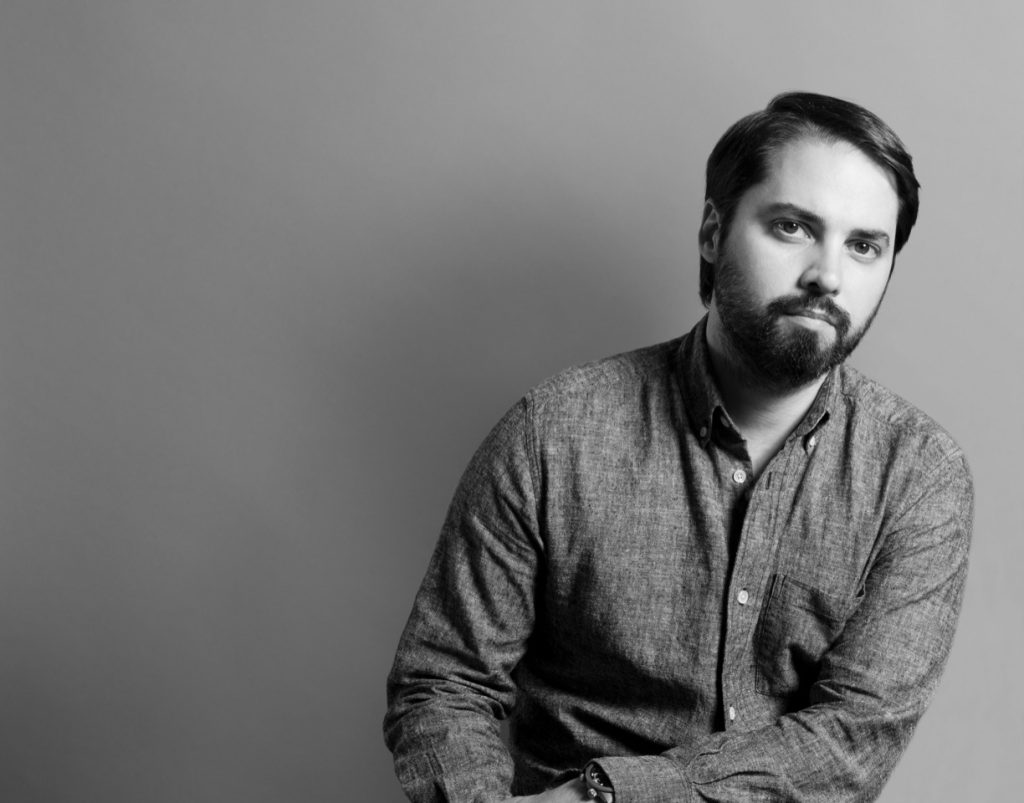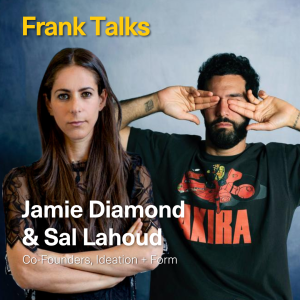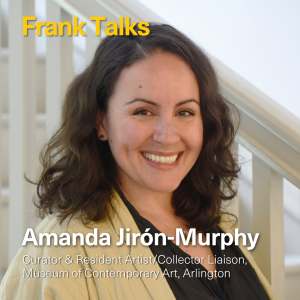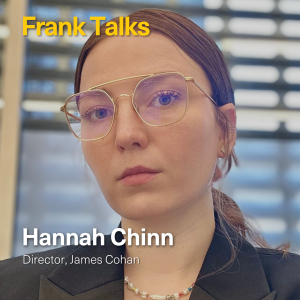Julian Martin is Partner and Creative Director at Lemon Yellow, a creative communications studio in Miami, Florida. Founded in 2005, Lemon Yellow has clients across the US, as well as France, Denmark and the UK. A thoughtful and rigorous creative, Julian is a consummate craftsman, bringing both imagination and integrity to everything he does. Whether he is editing, designing, or directing, he’s always looking to create a clear narrative journey for his clients and their audience. Producing work for both national and international clients, Julian’s output has been published in numerous international design publications.
What was your first job in the Arts?
I started working as an assistant camera operator when I was about 18 or 19. I had been volunteering at a local film co-op called the Alliance that was based out of the Art Center on Lincoln road. Pretty early on I began getting pulled into productions from hanging around the co-op. There was a cinematographer by the name of Mik Cribben that worked down here and had a rental House in New York called Film Friends, I think he was the first person that hired me to work in film. Eventually he started recommending me as a cinematographer and I began freelancing at that point. I learned volumes working for him, that was my film school.
What was the most useful or important thing you learned at that job?
Mik would always quote people to bring across important ideas and I think it began to dawn on my that in order to navigate the waters as a creative professional there was quite a bit of wisdom that I would have to acquire and employ. The creative part is important but without and ethical and professional framework the work gets destroyed.
Tell us a little more about yourself. When did you realize you wanted to pursue a career in this industry?
I started working as a director of photography and transitioned into design after starting Lemon Yellow with Erika. There wasn’t so much photography work at the time so I picked up design and focused on that. I did have a background for it, having spent a good part of my youth drawing and painting. Also taking architecture classes at DASH before getting kicked out. After that I went to a regular high school and dropped out. I went to college after that and dropped out again. That’s when I joined the Alliance. Eventually I met a guy named Ramon Suarez who agreed to mentor me a bit. He shot a notable Cuban film called Memories of Underdevelopment before moving to Paris in the 60s and working there during the New Wave period.
What do you do now?
I co-run a branding and design studio called Lemon Yellow. That means I wear a lot of hats but mostly I develop identities and oversee their implementation.
Where are you from?
I was born in Buenos Aires and moved to Miami at the age of five.
What is the arts community like there?
I don’t know so much about Argentina, I’ve been away for so long. My connection to it is through the Argentinians I know here and from a few precious memories I have from my very early life.
Has where you come from shaped what you do in the arts today?
Mostly likely but exactly how would be hard for me to assess.
What is the best piece of advice you can give about working in the art world?
Ethics are the foundation upon which you build a career. I would make sure you can live with the ones you’ve chosen to guide you.
What is one of your greatest accomplishments in your career so far?
The fact that we’re still doing it really is the biggest thing for me. We’ve built the studio on our terms and we feel very proud of the work. That’s all we ever really wanted.
What has been a challenge for you?
Being able to talk about the work from a business perspective. Which is not so difficult in retrospect, there’s just a tremendous amount of resistance that you face by people who are not able to make those connections.
What is something you do every day at the office (or your current home office)?
Making coffee is important to me.
What is one of the weirdest things you have had to do on the job in your career?
Early on we had a client that had plastic surgery offices and they wanted to film a Brazilian butt lift. Nobody wanted to take it on so I raised my hand. I was always curious of how I would hold up in that kind of environment. I did fine but it was pretty intense.
What defines a good employee? What defines a good boss?
I value and encourage autonomy. Being able to do something from start to finish yourself is an invaluable asset for an employee or employer.
What do you think makes a person hirable?
Personality.
What is your advice to making yourself stand out in your workplace? Any good tips for a giving a great interview?
Enthusiasm for something is a good place to start. Being around a bored person sucks the life out of you.
Is there any advice you would like to give people entering the art world?
My advice would be to invest time in yourself. Meaning, don’t listen to anyone’s opinions about how your career will play out. Make your own predictions and adjust them over time.
Any other anecdotes about your working experience that you would like to share?
We had kind of an interesting remote working situation a few years ago when we were remodeling this office. We took the whole studio to Savannah for a month. That was a great time, something we’re looking forward to doing again when circumstances permit.
What is the best exhibition you have seen in the last year?
The news kind of looks like an art piece these days, at least that’s how I try to think of it. That’s the closest I’ve gotten to an exhibition this last year.
If you could own a work by 5 different artists, who would be in your collection?
Writing from any ancient civilization, Sumerian, Egyptian, Greek… that would be nice. I find Cuneiform particularly beautiful because of its efficiency. On the other hand Ancient Mayan writing is really complex but also stunning.
How do you think art can play a fundamental role in the world’s recovery?
Art communicates culture and culture is the foundation on which we build civilization. Right now we have a fragmented society and it won’t aligned through logic or reason. If someone can create a compelling work of body of work that speaks to our collective unconscious, that would lay a foundation upon which to rebuild.
And finally, do you think the art world should be more transparent?
This culture is great in part because of a sense of individuality and personal responsibility. The art world isn’t as interesting to me as artists are. I would encourage them to be individuals, the rest will sort itself out.
